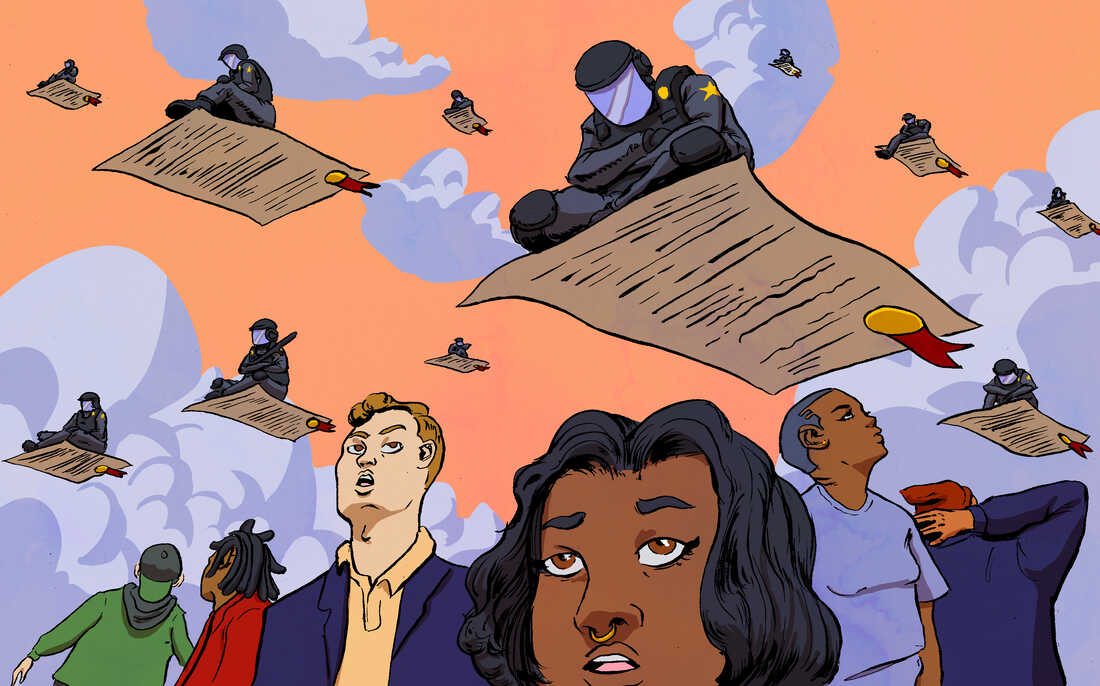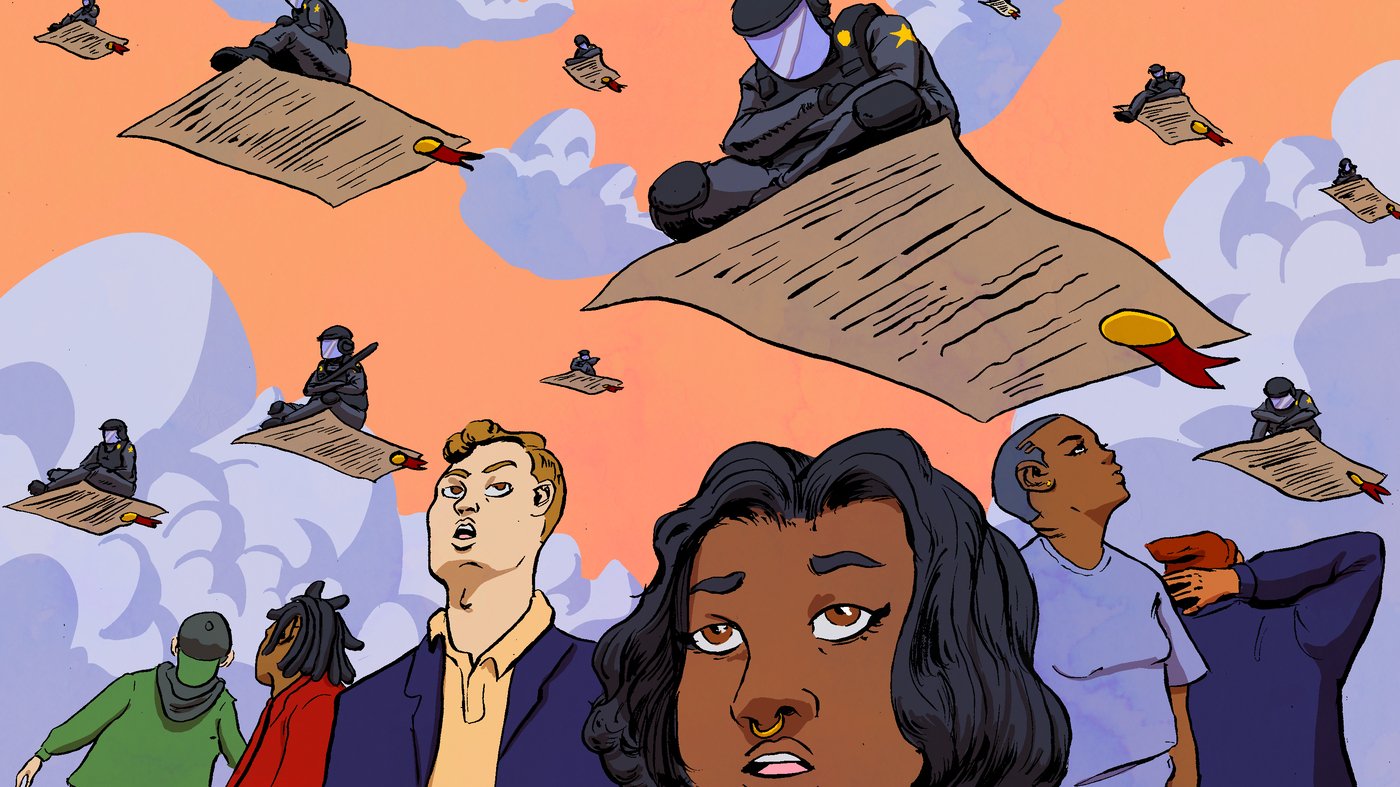

In the wake of the police killings of Breonna Taylor and George Floyd, people are asking hard questions about what, exactly, should be done about the police. Take them out of schools? Defund them? Or should we abolish them altogether?

Seemingly radical notions like defunding police departments or outright abolition of the police have gained momentum in no small part because police departments have proven, again and again, resistant to even the most modest reforms. Even smaller-bore efforts to remove so-called “bad apples” have often gone nowhere; police officers seldom lose their jobs for brutality and misconduct. They’re also rarely arrested or indicted — let alone convicted — of wrongdoing in criminal cases.
It’s also virtually impossible to get redress by suing a police officer in a civil case, thanks to a judicial doctrine called qualified immunity. Effectively, qualified immunity means that government officials like police officers can only be held accountable in civil court for violating a person’s rights if those rights are “clearly established” in already-existing case law. (It’s a little technical, we know.)

To help us understand how qualified immunity shapes the criminal justice system, we spoke with Josie Duffy Rice, who’s been thinking about the doctrine’s history and influence for a long time. She’s the president of The Appeal, a journalism organization that focuses on policy and the justice system, and she’s the co-host of their podcast Justice in America.
Here’s a snippet of our conversation, which has been condensed and edited for clarity.
For those of us who aren’t super-familiar with the concept, what is qualified immunity?
Qualified immunity is essentially a defense available to public officials when they’re accused of wrongdoing.
So let’s say you are driving down the street, you get pulled over. A cop tells you to get out of your car. He beats you within an inch of your life. And later, you want to sue him for the harm that you endured, for any medical bills or for any sort of financial consequences that came out of your experience. If it was a random person, you could sue them in civil court, aside from there being possible criminal consequences, and they could find that this person owes you money
Because of qualified immunity, public officials are held to a much lower standard. Basically, they can only be held accountable insofar as they violate rights that are “clearly established” and according to existing case law. The courts are usually saying that there are no previous cases with this case’s exact fact pattern. There are no cases where a cop beat someone this exact way, and where a public official has been held accountable in the past.
Because we’ve never held anybody accountable for this, we cannot now hold them accountable. And obviously that creates a tension, because if you never are willing to hold anyone accountable for anything, there’s never going to be any clearly established violations.
There is just example after example of incompetence combined with recklessness and maliciousness where the courts say that this is actually okay. I mean, it’s not okay morally, but it’s okay legally.
This sounds like cops are basically impervious to any lawsuits or civil repercussions. Why would we want to give cops and police officers that kind of protection?
Many years ago, the Civil Rights Act of 1871 — which is also known as the Ku Klux Klan Act — was passed by Congress. It gave Americans the right to sue public officials who violate their rights. It was pretty straightforward: It said every state official who causes a deprivation of any rights guaranteed by the Constitution shall be liable to the party injured. And that’s pretty clear. If you get beat up by the police officer, you get to sue the police officer, and this police officer is liable to you.
For example, in 1961, there’s this case called Monroe v. Pape, where this Black family, the Monroes, sue Chicago police officers. These police officers, in the wee hours of the morning, broke into these people’s house, rounded them up, made them stand completely naked in the living room, searched every room. They were going through all their private stuff, ruining their furniture, ripping covers off of mattresses and going through their drawers. And then they arrest James Monroe, who was the father, detain him and question him for hours.

The family sues, and the Supreme Court said that yes, they get to sue the officers for what happened to them, because their rights very well may have been violated. The whole point of the existing law is that when an official abuses their position, there is some remedy outside of the criminal court to hold that official accountable.
That’s an interesting case for many reasons. This family is Black, and the courts have not traditionally been particularly sympathetic to Black people in America. But this is a few years after Brown v. Board. This is a few years before the Voting Rights Act. This is an era where the Supreme Court at least has some moments of clarity around race in America.
So what changed in the way that right to sue was interpreted?
In 1967, the Supreme Court invented this thing called qualified immunity. They sort of say, this is like a small exception to the rule, okay? If a public official acts in “good faith” and believes that their conduct is authorized by law, then they are not accountable.
Fifteen years after 1967, there’s this case called Harlow v. Fitzgerald. Then, the courts basically change their reasoning — and that’s when this whole “clearly established” thing comes out. Now, it doesn’t matter if the officer acted in good faith. Even if officers or officials act maliciously, unless the victim can show that his or her right was “clearly established,” they basically can’t get any relief. All of a sudden, you see a situation where nobody’s liable.
To learn more, listen to this week’s Code Switch episode wherever you get your podcasts, including NPR One, Apple Podcasts, Spotify, Pocket Casts, Stitcher, Google Podcasts and RSS.

Felecia Phillips Ollie DD (h.c.) is the inspiring leader and founder of The Equality Network LLC (TEN). With a background in coaching, travel, and a career in news, Felecia brings a unique perspective to promoting diversity and inclusion. Holding a Bachelor’s Degree in English/Communications, she is passionate about creating a more inclusive future. From graduating from Mississippi Valley State University to leading initiatives like the Washington State Department of Ecology’s Equal Employment Opportunity Program, Felecia is dedicated to making a positive impact. Join her journey on our blog as she shares insights and leads the charge for equity through The Equality Network.




